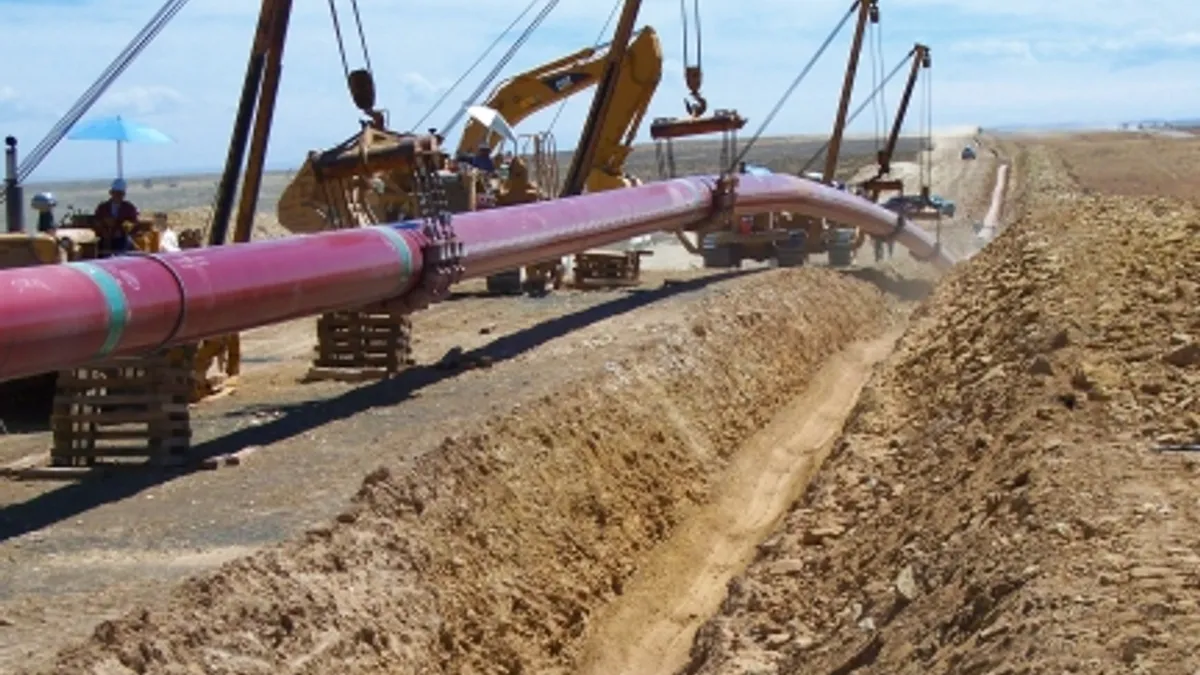Dive Brief:
- The North Carolina Department of Environmental Quality has issued a water quality certificate for the Atlantic Coast Pipeline, clearing a major hurdle for the project to carry fracked natural gas from producers in West Virginia to markets in multiple states.
- The controversial project must obtain several other approvals from the DEQ, including an air quality permit for a compressor station in Northampton County, multiple stormwater permit and approval of an erosion and sediment control plan for the northern segment.
- The project, spearheaded by Dominion, would run more than 600 miles from West Virginia to southeastern regions of Virginia and North Carolina. Despite opposition from environmental groups, developers have been making progress on getting necessary approvals to break ground.
Dive Insight:
Federal regulators have already approved the Atlantic Coast Pipeline project; at this point project backers are making the rounds to collect approvals in different states. It is a lengthy process just to begin preparing to build.
Dominion Energy's Aaron Ruby said in a statement that the water quality certification was "one of two remaining approvals needed to begin pre-construction activities in the state." The review stretched more than three years, he said, before determining the project would preserve North Carolina’s water quality.
Along with Dominion, partners include: Duke Energy, Piedmont Natural Gas and Southern Company Gas. The pipeline is expected to cost up to $5 billion to construct. Dominion Energy will own 48% of the project; Duke and Piedmont own 47%; and Southern owns 5%.
The water quality certificate had several "more stringent" requirements added, according to a DEQ statement, including wetlands monitoring, using horizontal drillings to cross waterways, and private well testing.The project must also obtain a 404 permit from the U.S. Army Corps of Engineers for stream and wetland impacts. The West Virginia Department of Environmental Protection recently waived its authority under the Clean Water Act.
In Virginia, Dominion will use the gas to fuel power plants, while Virginia Natural Gas would use the gas to provide home heating, in addition for commercial and industrial operations. In North Carolina, Duke Energy will use the gas to generate electricity, while Piedmont Natural Gas will provide for heating and industrial operations. A fifth customer is Public Service Company of North Carolina, owned by SCANA Corp.
Another pipeline, Rover, has faced scrutiny for violating its water permits and regulations in Ohio and West Virginia.














